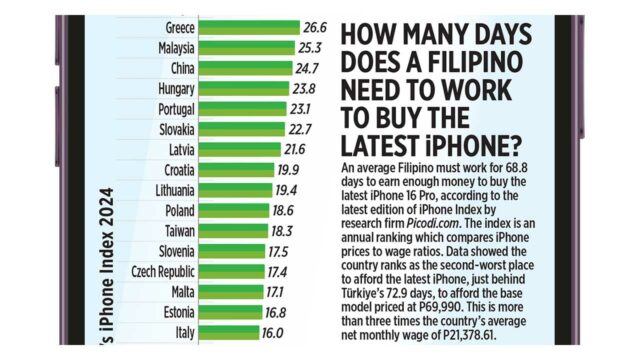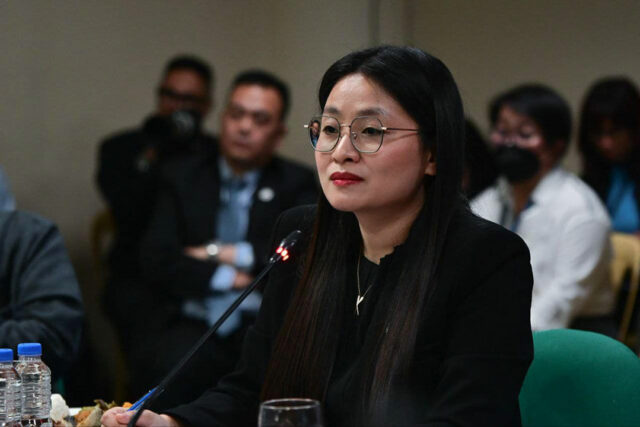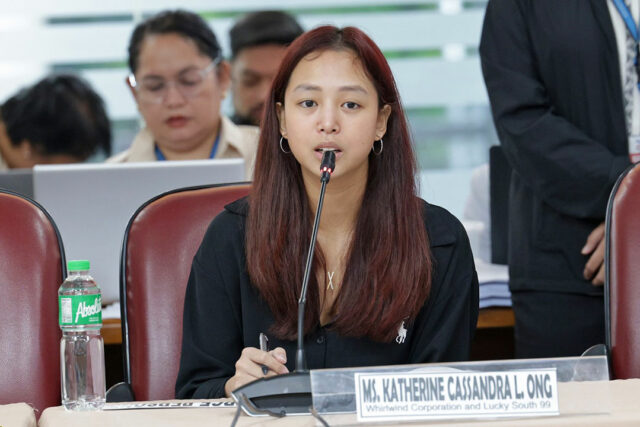At China’s Zhongzhi, risky practices preceded shadow bank’s collapse
SHANGHAI/BEIJING/HONG KONG — Zhongzhi Enterprise Group, a former leader of China’s shadow banking sector that declared insolvency last year, used aggressive and potentially illegal sales practices to sustain its operations as it lurched toward collapse, according to records reviewed by Reuters and eight people with direct knowledge of the matter.
China’s years-long property boom had propelled Beijing-headquartered Zhongzhi to the top of the country’s $18-trillion asset-management industry and made it a key player in a shadow banking sector the size of the French economy. Asset managers such as Zhongzhi sell wealth-management products to investors. The proceeds are then channeled by licensed trust firms like its Zhongrong unit to developers and other companies that cannot tap bank funding directly because of poor creditworthiness or other reasons.
Previously unreported details show that about a year before its financial troubles burst into the open, Zhongzhi units were paying returns to existing investors in wealth-management products by using funds from new investors, and promising individual investors lucrative returns that belied the group’s exposure to a deepening property crisis.
China’s trust firms are known as shadow banks because they operate outside many of the rules that govern commercial lenders. But China’s top banking regulator in 2018 specified that financial institutions including shadow banks and asset managers should not set up capital pools, to prevent them from using money from new sales to cover returns on existing wealth-management products, nor should they guarantee returns on wealth-management products.
Zhongzhi appears to have violated both those requirements, two lawyers said after reviewing Reuters’ findings at the request of the news agency. The lawyers added that such wrongdoing can result in fines and prison sentences of up to 10 years.
“The core of its suspected illegal action is raising money from investors through its licensed financial institutions to fund the group’s business operations and expansion,” said Zhang Guanghui, an attorney at Guangdong Suijia Law Firm.
Zhongzhi and its units identified in this story did not respond to detailed requests for comment about the practices outlined by Reuters.
Chinese officials were similarly tight-lipped. China’s ministries of public security and justice, which oversee the Beijing police and prosecutors, respectively, did not respond to queries about the cases against people connected to the shadow bank. China’s National Financial Regulatory Administration and central bank also did not respond to requests for comment about Zhongzhi units’ practices.
The liquidity crisis at Zhongzhi became public when trust unit Zhongrong missed payments on dozens of products in the third quarter of 2023, fueling investor protests and worries that China’s property meltdown was spilling over into its $66-trillion financial industry.
Eventually, Zhongzhi told investors in November 2023 that it was insolvent with up to $64 billion in liabilities. The group filed for bankruptcy liquidation in January, while Beijing police probed its business practices. In March, Beijing police said on WeChat that wealth-management firms under Zhongzhi should cooperate with police and return any illegal income.
In August, Beijing prosecutors said they had charged 49 suspects related to Zhongzhi on suspicion of illegally absorbing public deposits, without providing details.
Public deposits flowed into Zhongzhi’s shadow bank operation via the funds the investors placed in the wealth-management products that Zhongzhi’s licensed financial units were selling. Reuters couldn’t determine the specific deposits or units to which the prosecutors were referring.
Interviews with current and former Zhongzhi group staff and investors, as well as records reviewed by Reuters, shed new light on how its units’ possibly illegal practices exposed middle-class savers to damaging consequences of China’s property bust, despite regulators’ efforts to rein in the shadow banking sector’s excesses.
The eight sources spoke to Reuters on the condition of anonymity, citing fear of official retribution.
RAGS TO RICHES
Zhongzhi was founded in 1995 by Xie Zhikun, a rags-to-riches tycoon who started with timber and real-estate businesses before expanding into financial services.
In its heyday, Zhongzhi cashed in on China’s booming property market. It raised funds by selling wealth products to retail investors while trust arm Zhongrong charged developers like Country Garden an interest rate of over 12% on one-year loans, according to four Zhongrong investment banking documents dated 2017, which Reuters reviewed. While this wasn’t uncommon for shadow banks, the benchmark bank lending rate was around 4%.
As business soared, Xie rubbed shoulders with developer magnates, including China Evergrande Group chief Hui Ka Yan and Country Garden head Yang Guoqiang, according to three current and former staff. Both developers have since defaulted on debt repayments and property builds; Evergrande is going through a court-ordered liquidation process, and Country Garden is facing the prospect of one. Neither responded to requests for comment about their ties to Zhongzhi.
Zhongzhi staff raked in sky-high bonuses as the property boom turbocharged both growth and demand for high-yielding wealth products, said one current and two former Zhongrong staff. Xie gave vast sums to Fudan University, his alma mater, and held summer getaways for top-performing staff, where he would recite poetry, two of these people said. The university did not respond to questions about the unspecified donations.
Meanwhile, salespeople in Zhongzhi units were touting the group’s connections with local governments and its trust unit’s backing by state-owned Jingwei Textile Machinery Co., its largest shareholder, according to two investors and now-deleted state media reports. Jingwei did not respond to a request for comment about the nature of its involvement with Zhongzhi.
Xie died in 2021, aged 61, after a heart attack. That year also marked the beginning of the property sector’s liquidity crisis as Chinese regulators cracked down on developers’ debt-fueled construction to curb spillover risk to the broader financial sector.
In July that year, one Zhongzhi unit’s sales pitch for a wealth-management product masked the growing strain.
“This is a fixed-return product,” a Hang Tang Wealth salesperson wrote to investors in a WeChat group in July 2022, according to a screengrab of the exchange reviewed by Reuters. The salesperson guaranteed a minimum 6.2% return on a three-month wealth management product on investments exceeding 1 million yuan, or about $140,000, outstripping the 1.5% on local bank deposits.
The Zhongzhi unit “assumes the full, unconditional and irrevocable obligation” for timely repayment to investors, the salesperson said, giving three thumbs-up emoji.
Zhongzhi salespeople’s tactics and claims pulled in thousands of investors. But as developers across the country started to suffer cash flow issues, they defaulted on loans they owed to Zhongrong, the licensed trust unit. In turn, Zhongrong defaulted on sums owed to investors.
As difficulties mounted, Zhongrong board secretary Wang Qiang briefed dozens of angry investors at the company’s Beijing headquarters in August 2023. Wang told them that funds from some Zhongrong wealth-management products had been invested in projects that were no longer generating returns, and that the company was consequently struggling to pay redemptions, according to a recording of the meeting reviewed by Reuters, as well as four current and former Zhongzhi employees and two investors.
“There must have been no returns from the products,” Wang said. “With no returns, what can we use to repay investors? Either issue new products or rely on the remaining cash.” But by July 28 that year, the cash had run out, he added.
Pressed by an investor on whether Zhongrong had engaged in capital pool business, which the regulations prohibit, Wang acknowledged: “Some of the products have characteristics of capital pools.”
Zhongzhi had increasingly employed such practice starting around early 2022, as developers defaulted on loans and its coffers ran dry, said one current and three former Zhongzhi unit employees. The effect, they said, was to conceal Zhongzhi’s deteriorating position.
Wang could not be reached for comment through Zhongrong.
AFTER THE FALL
Zhongzhi’s collapse to a large extent was precipitated by its outsized loan exposure to cash-starved developers, many of which had turned to shadow banks to borrow as Beijing’s crackdown had cut them off from main street lenders, according to three current and former employees.
Zhongrong’s real-estate investment exposure accounted for 10.7% of its total assets under management as of the end of 2022, higher than the industry average of 5.8%, according to Citigroup. Zhongrong provided a near-identical figure in its annual 2022 financial statement.
The bankruptcy proceedings are likely to take a long time. On June 28, a Beijing court said Zhongzhi’s bankruptcy administrator had applied for “substantial consolidation” and liquidation of the company and 247 affiliated firms. The administrator, Beijing Dacheng Law Offices, did not respond to Reuters questions about the process.
Some Zhongzhi investors told Reuters they have lost hope of getting their money back.
Wang, a 51-year-old who owns a tech company in Shenzhen, thought she was “playing safe” when she invested 1 million yuan in a four-year term product of a Zhongzhi unit, Zhonghai Shengrong.
The investment contract Wang signed in May 2020, which Reuters reviewed, said the expected rate of return was 11%, compared with a benchmark three-year bank deposit rate of 2.75%. Funds raised from the product would go to the unit’s “working capital”, the document showed.
But several months before Wang’s returns on maturity were due, Zhongzhi declared insolvency.
“It turned out I was caught in the landslide,” she said. — Reuters















